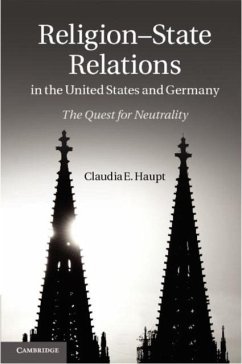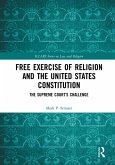This comparative analysis of the constitutional law of religion-state relations in the United States and Germany focuses on the principle of state neutrality. A strong emphasis on state neutrality, a notoriously ambiguous concept, is a shared feature in the constitutional jurisprudence of the US Supreme Court and the German Federal Constitutional Court, but neutrality does not have the same meaning in both systems. In Germany neutrality tends to indicate more distance between church and state, whereas the opposite is the case in the United States. Neutrality also has other meanings in both systems, making straightforward comparison more difficult than it might seem. Although the underlying trajectory of neutrality is different in both countries, the discussion of neutrality breaks down into largely parallel themes. By examining those themes in a comparative perspective, the meaning of state neutrality in religion-state relations can be delineated.
Dieser Download kann aus rechtlichen Gründen nur mit Rechnungsadresse in A, B, BG, CY, CZ, D, DK, EW, E, FIN, F, GR, HR, H, IRL, I, LT, L, LR, M, NL, PL, P, R, S, SLO, SK ausgeliefert werden.









